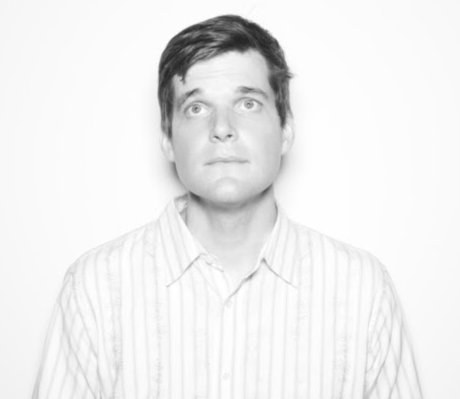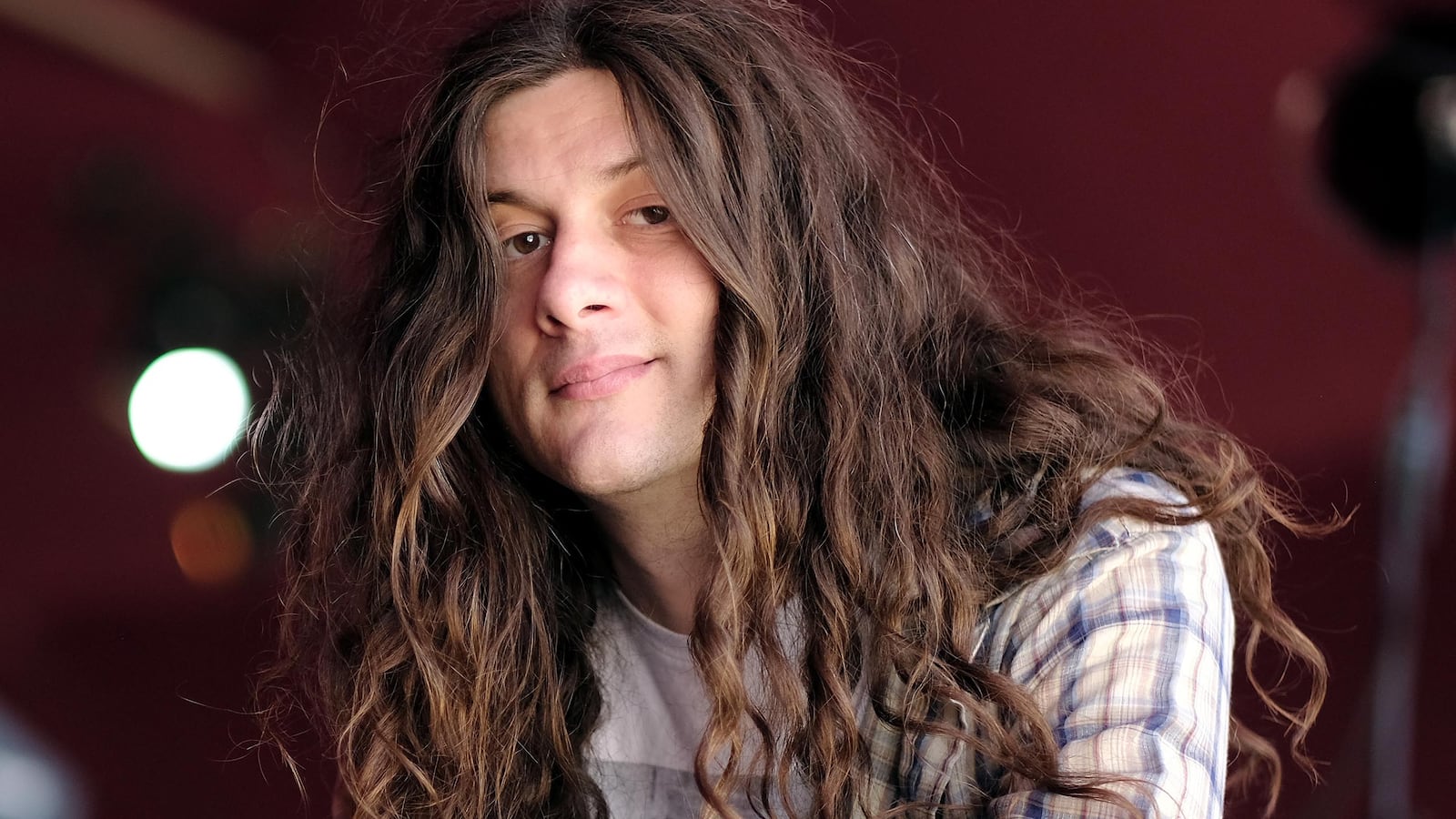Kurt Vile almost opened for Tom Petty once. Didn’t happen, though.
“It fell through,” he says, as the barest suggestion of a frown forms at the bottom of his face. “It would have been amazing. I’ve been thinking about Tom Petty a lot.”
On the surface, Kurt Vile doesn’t necessarily sound all that much like Tom Petty. The late classic rocker tended to keep his jangly anthems to a spritely three minutes or so. One wonders what Petty would make of “Bassackwards,” the nearly ten-minute long highlight of Kurt Vile’s new album Bottle It In, a layer cake of melting guitars that slowly drowns you in the songwriter’s nervously blissful headspace.
But the Petty and Vile parallels are there, and too numerous to ignore, at least on the occasion of the one-year anniversary of the passing of the former and a status-cementing new album from the latter.
To start with, they both arrived in their eras like men out of time. Petty emerged from Gainesville in the ’70s, offering up wistful Beatles and Byrds-indebted melodies in the age of disco and punk, while Vile shambled out of Philadelphia in the late ’00s to become a denim-clad classic rock god in a hip-hop world.
And both of them turned out to be the counter-ballast their times needed.
On a late September afternoon, Vile is sitting in the lobby of the downtown New York hotel 50 Bowery, because even a man out of time needs to pay heed to the publicity needs of the music industry. He’s wearing pink flannel and a black Lou Reed t-shirt, and he is all limbs, so lanky and rail-thin that if he were ever arrested for excessive soloing in public, he could easily squeeze between the bars of any jail that tried to hold him. He’s polite, if a bit tired, and highly fidgety, continually turning over in his chair and checking his phone; his manager keeps checking in with him as there’s so much to do before Bottle It In is released.
“I almost decided not to do so much press,” he says with a shrug, “but that would be ridiculous, considering all my hard work on the album.”
He was born in Lansdowne, a suburb of western Philadelphia, and shared the house with nine siblings. “It was a lot of noise and stimulation,” he recalls. “That's one of the reasons why I can go in and out of my head at any time.” It’s a skill that would prove useful.
He started writing songs at the age of 14. “I took it seriously right away,” he says. “When I was 16 or something, I recorded a song on a friend's brother's four-track and I listened back and it was awesome. I had a cassette tape come out when I was 17. A 60-minute tape. I've been 100% serious since I was a teenager.”
Vile moved to Philadelphia proper, a town that because of the relatively cheap cost of living has slowly become one of the most important cities for American rock music this century. (For the record, he doesn’t own a television but knew from the commotion on the street that the Eagles won the Super Bowl. “I was happy for the team, but I'm not a big sports follower,” he says. “To be honest, I don't give a shit about sports at all”).
He took gigs at the local bottling plant and other random jobs by day, and by night was furiously writing, recording and playing out, for a time as a member of The War on Drugs, the other great recent success story of Philadelphia. Vile stockpiled a collection of home recordings and sold his cassettes via consignment, eventually earning a deal with Matador Records.
Over time, Vile has gone on to prove himself one of the most dependable makers of something the mass audience doesn’t seem particularly interested in anymore: Blue-collar rock songs that examine the small-scale triumphs and tragedies of everyday life, buttressed by liquid guitar expulsions. One wonders if he had come around two decades earlier, if he might not have shared a few more things in common with Petty, such as a major-label contract, a slew of gold records and an arena-sized audience.
“Yeah, I think I’d probably be bigger,” he says with a shrug. “More people would see my videos.”
There’s been much ink spilled lately about the decline in popularity of rock music, how it can’t compete with hip-hop in the streaming economy or attract much of an audience at music festivals. Vile finds this all to be a bit overblown. “I hear people talking about that, but I don't really pay attention. There's always going to be a resurgence of the guitar versus whatever,” he says. “I think people are saying at festivals that people aren't paying as much attention to the rock. I don't know, it depends on the festival. I'm not sweating that because I can always play club shows for a while. There's always something to do. There's always somewhere to play. I don't care.”
Why would he? Things are going just fine for Kurt Vile. His last three albums (2011’s Smoke Ring for My Halo, 2013’s Wakin on a Pretty Daze and 2015’s B’lieve I’m Goin Down...) were hailed by critics and vinyl connoisseurs and he's become a mainstay at Adult Alternative Radio. “It’s been one step at a time,” he says. “I definitely had to work. Nothing is handed to me too easy. Maybe that's my blue-collar upbringing. It just doesn't get to my head too much.”
Since, the 2008 release of his official debut Constant Hitmaker (a compilation of his home recordings), he’s had an album out every other year and is rarely off the road for long. Bottle It In was recorded during breaks on the road, when he would pop into a studio, be it in Los Angeles with War on Drugs producer Shawn Everett or in Bridgeport, Connecticut with Peter Katis, best known for his work with Interpol and The National, to see what he could make happen in a crunched time frame. “I've done months in a studio at a time, and I couldn't stomach that again,” he says. “I even did a few two-week stints, and even those seemed too long. My favorite sessions were the ones that I was literally coming from somewhere and I came in two to three days. You really get a lot of great stuff done in that small amount of time.
“I really just want to live my life,” he says. “I want to record music in real time.”
The pace is starting to get to him, he admits. He had Bottle It In pushed back a few months so he could rest. Even at a generous 79 minutes, he says he recorded another album’s worth of material but was adamant that it all fit on one CD. During this time, he worked on several other projects, some of which he says didn’t come together, including a “psychedelic” film score. “I learning software at my house for it,” he says. “It didn't work out the way I thought it would. It took a lot of my energy.”
He credits the tour for Lotta Sea Lice, the collaborative album he released last year with his friend Courtney Barnett, as helping to lift his spirits. “It was such a magical experience,” he says. “It really helped, me being one with the music. It's important to play live.”
It might be time for him to take a break soon, he muses. But not just yet. “I just felt like I had one more epic record that I need to bring out before too long,” he says. “So, that’s what's happening here.” Bottle It In is a rich, deep record that invites you to get lost in it. There is his signature shaggy humor in opener “Loading Zones” (a tribute to his home city in which he brags about dodging parking tickets) and “One Trick Ponies,” an ode to lovable losers. But where the album truly shines is the sprawling ten-plus minute suites like “Bassackwards” and “Skinny Mini,” songs that both explore, sonically and lyrically, one of Vile's major preoccupations: getting lost in one’s thoughts. (“So I was on the ground circa planet Earth / But outta sorts”) Though he often presents himself in his videos as a laid back “What, Me Worry?” guy, like the rest of us, Vile (a father of twin girls) is increasingly stressed out about the state of the world. In many ways, Bottle It In is about the need to escape, if only for a bit, and sees him doing his best to give his listeners as much of a reprieve as he can.
“I’m not checking for the bad news but I’m seeing it without a choice," he says. “It just pops onto my fucking phone. It sucks.”
But as much as his music can provide an escape, Vile says he can't help but comment on the world in his songs these days. “I think my music is political in that it is a reaction. It doesn’t really seem like my style of music to wave a newspaper headline about how fucked up thing are. But they really are you know. They really are fucked up,” he says. “I don’t have to call people by name, but it’s definitely in there.”
If the world, or his workload, is starting to wear on him, he's going to push forward anyway. He’s going to be touring all next year, he knows. And then after that maybe he’ll take a break. Or maybe not. He’s already starting to work on the next album, one “a little more influenced by him in some ways,” he says, referring to Tom Petty. He pushes back a bit when it is suggested that, like Petty, he might be an old soul.
“I'm sensitive to the world. I’ve seen ups and downs of all kinds of things but I can’t really be like, ‘Yes I am an old soul,’ I would say that I’m not a ‘young soul.’”






